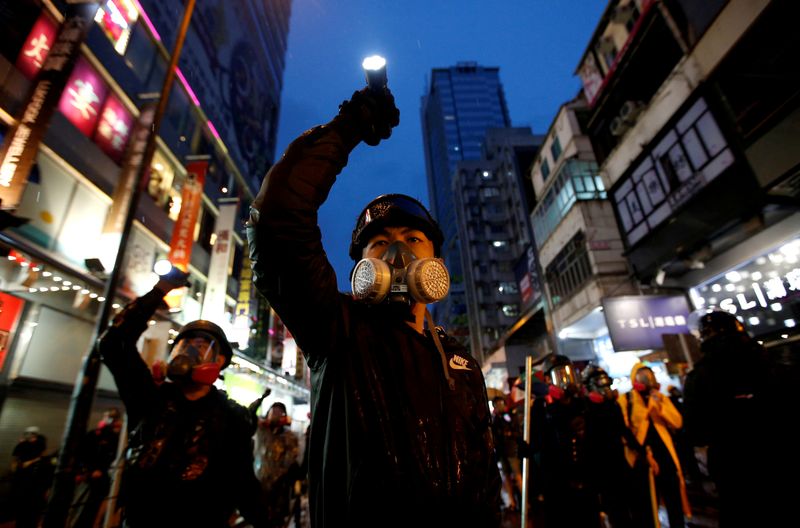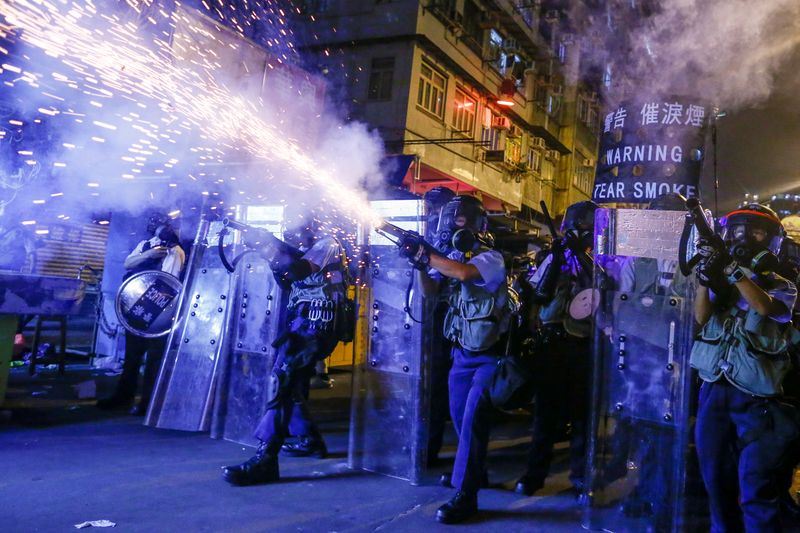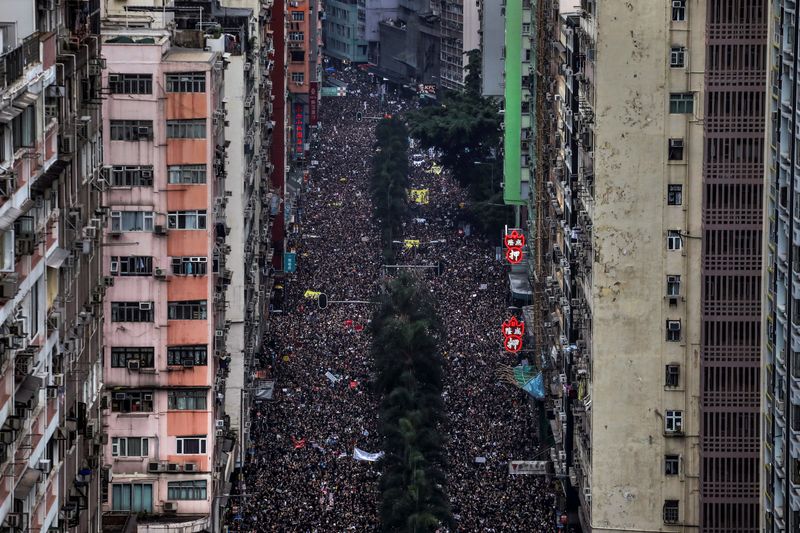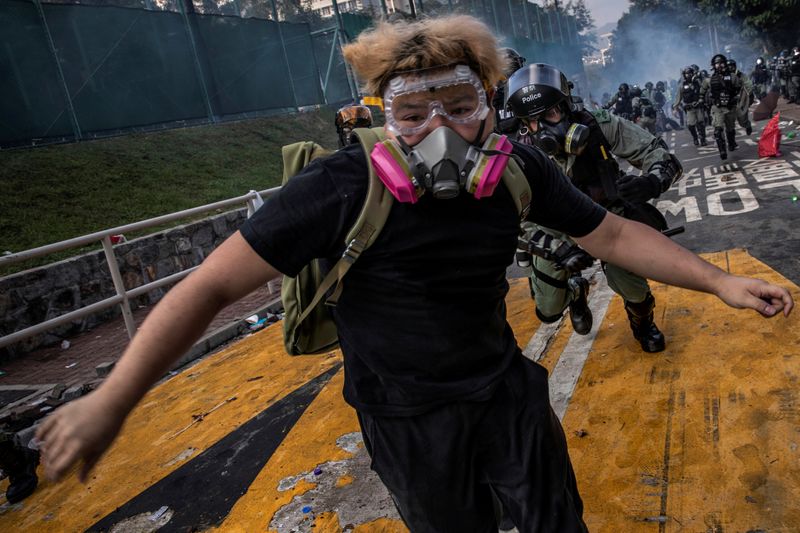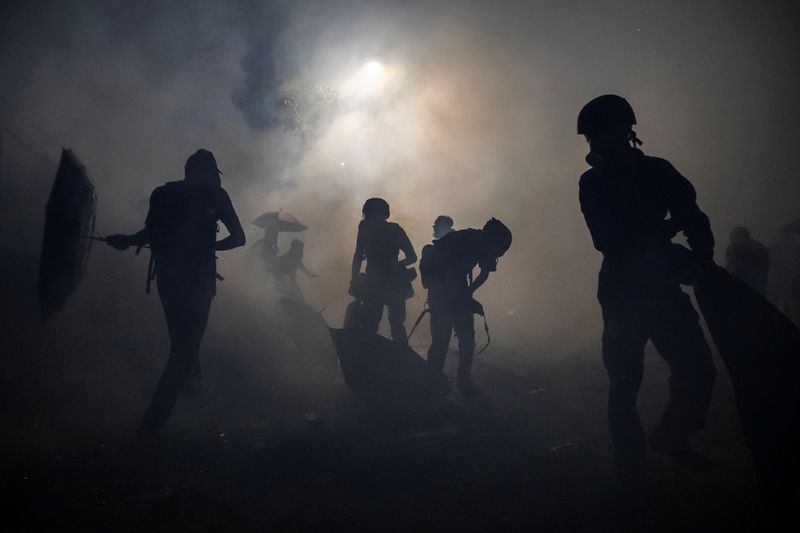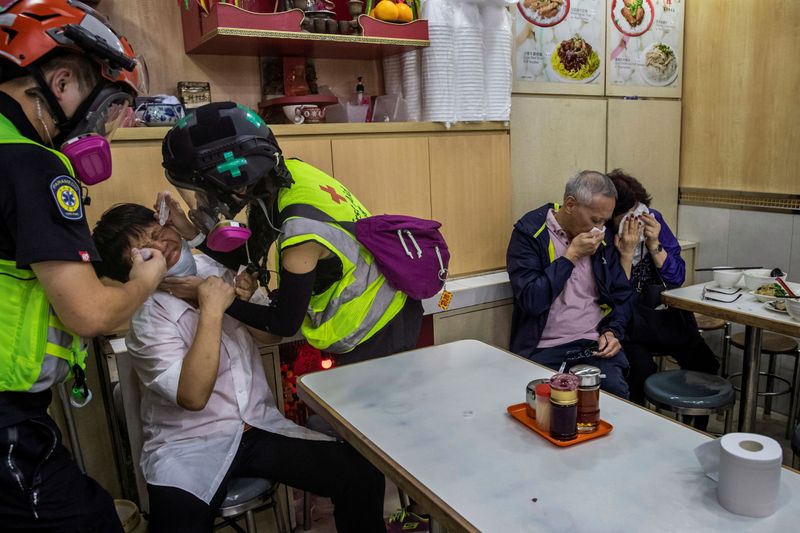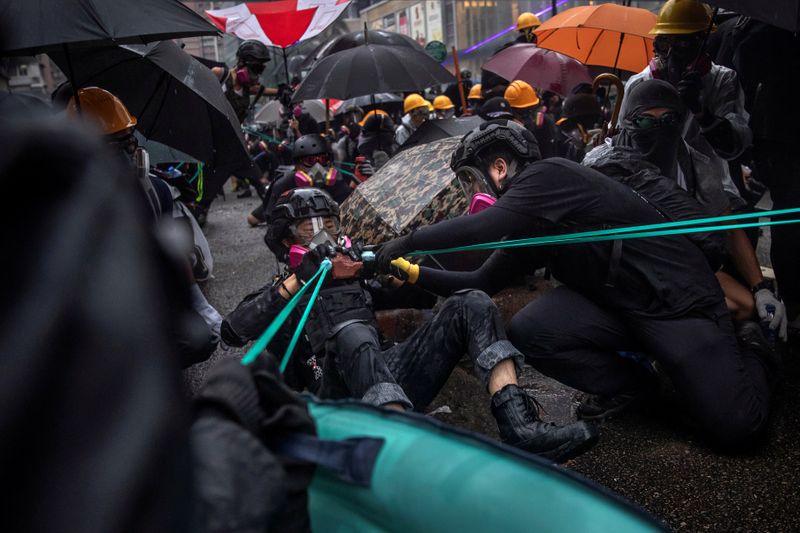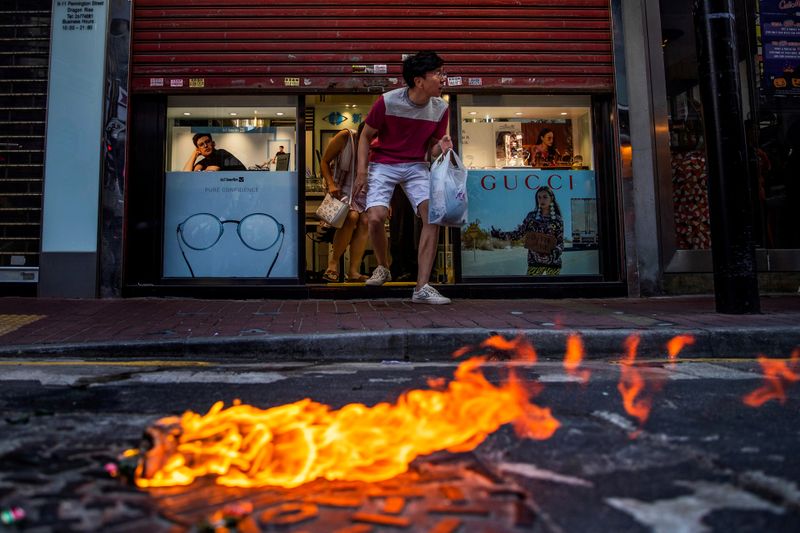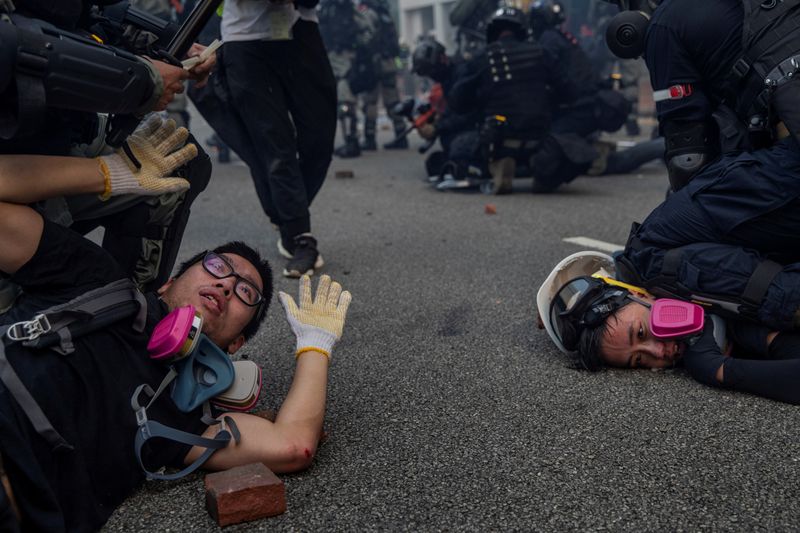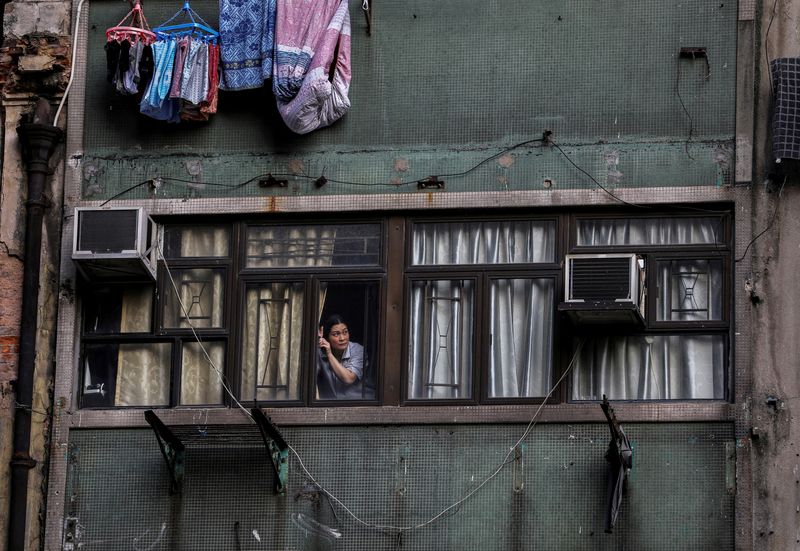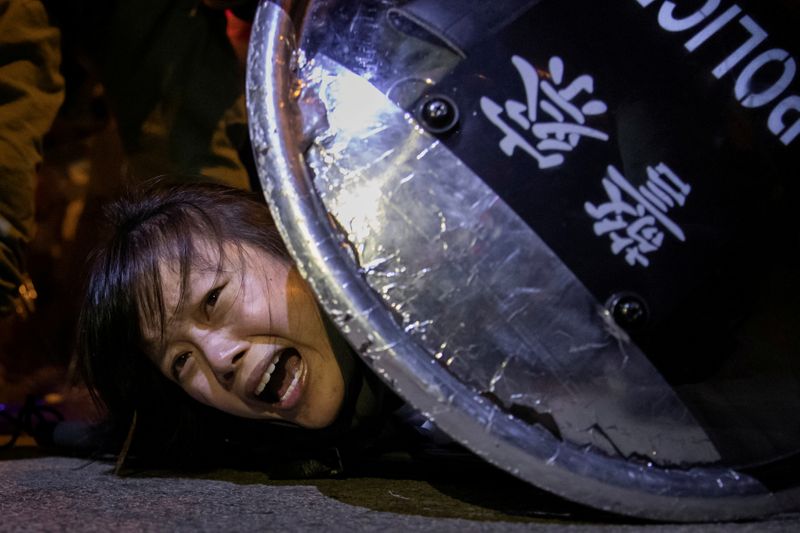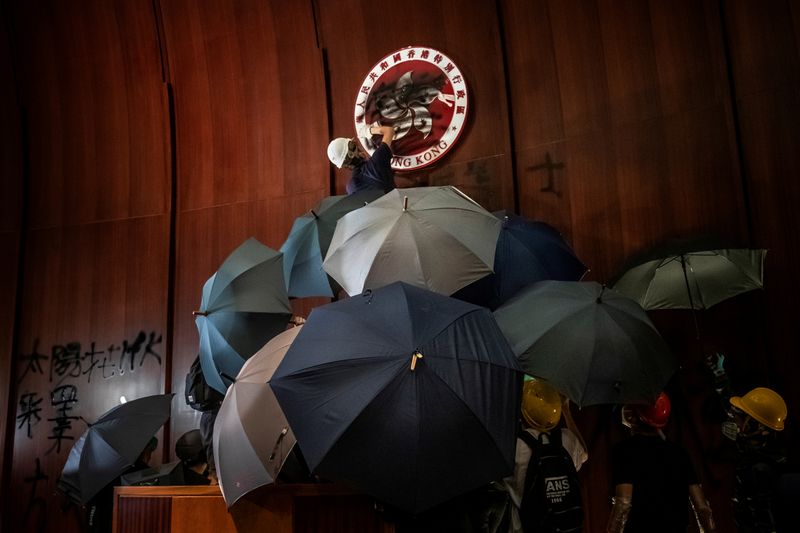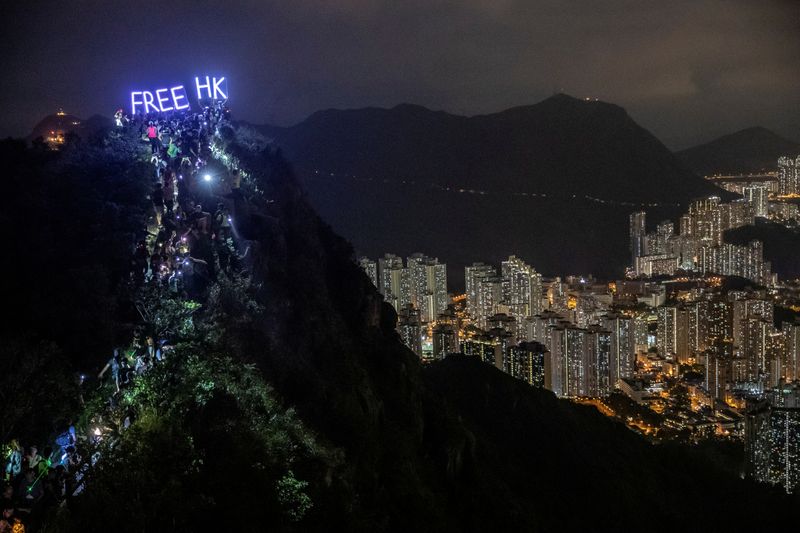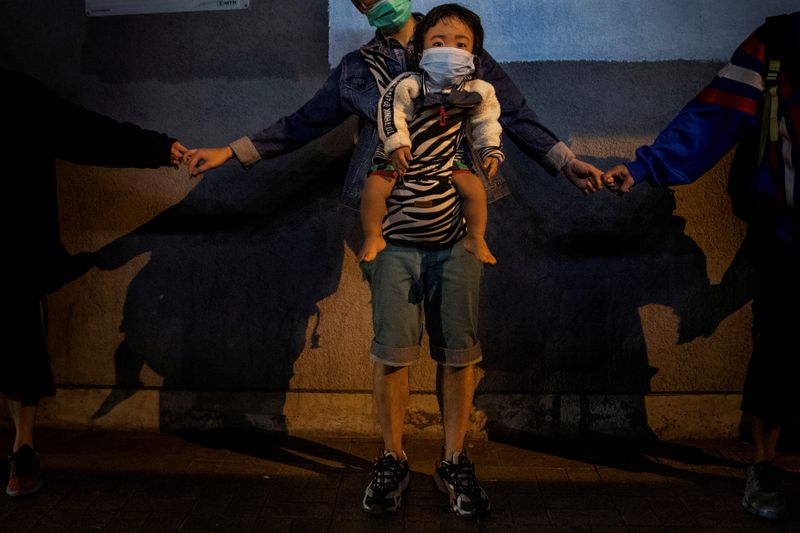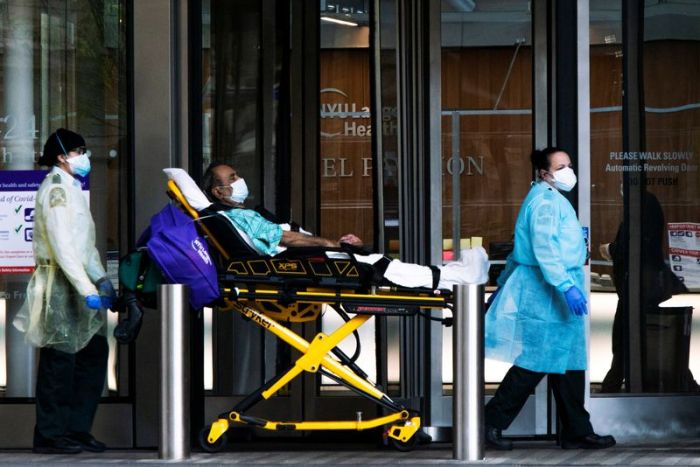(Reuters) – The Anchorage Daily News and ProPublica won the Pulitzer Prize for public service journalism on Monday for revealing one-third of Alaska’s villages had no police protection, while the photography staff of Reuters won the breaking news photography award for documenting last year’s violent protests in Hong Kong.
The Courier-Journal in Louisville, Kentucky, took home the breaking news honor for its coverage of hundreds of last-minute pardons issued by former Governor Matt Bevin. The prize for investigative reporting went to the New York Times’ Brian Rosenthal, who uncovered how thousands of New York City’s taxi drivers had their lives ruined by predatory lending.
The Pulitzer Prize for Reuters, a unit of Thomson Reuters, was the newsroom’s eighth since 2008, and fifth in the last three years. For its coverage of the protests, which grew out of concern that China was intent on curtailing Hong Kong’s freedoms, Reuters’ staff was also a finalist for the international reporting award, which was won by The New York Times.
The Pulitzer Prizes, the most prestigious awards in American journalism, have been handed out since 1917, when newspaper publisher Joseph Pulitzer established them in his will. Monday’s announcement had been postponed for two weeks because some journalists on the 18-member Pulitzer board are busy covering the coronavirus pandemic.
In normal years, the prizes are announced at Columbia University in New York. On Monday, Dana Canedy, who administers the Pulitzers, delivered the news from her living room via video, after weeks in which board members hashed out the finalists and winners remotely.
“Ironically, the very first time the Prizes were presented was June 1917 — less than a year before the 1918 outbreak of the Spanish Flu pandemic,” Canedy said. “During this season of unprecedented uncertainty, one thing we know for sure is that journalism never stops.”
The Anchorage Daily News and ProPublica series found rampant sexual abuse in rural villages that are largely populated by indigenous people, where law enforcement was effectively nonexistent.
The public service award is generally seen as the most coveted of the 15 journalism categories. The Pulitzers are also awarded in seven book, drama and music categories.
‘DEEPLY MEMORABLE’
Many of the winning Reuters photographs depicted the violent clashes between Hong Kong protesters and authorities, including images taken in the midst of skirmishes with tear gas, rubber bullets and hurled bricks.
“Our photographers brilliantly captured the magnitude of the protests in Hong Kong,” Stephen J. Adler, Reuters editor-in-chief, said in a statement. “Their images were beautiful, haunting, illuminating and deeply memorable.”
The Seattle Times shared the national reporting prize for its series exposing design flaws in Boeing Co’s 737 Max passenger jet that led to two fatal crashes, as well as a contributing lack of government oversight. ProPublica also won in the category for an investigation into the U.S. Navy’s Seventh Fleet following several deadly accidents at sea.
For the first time, the board gave out an “audio reporting” prize, which went to the public radio show This American Life as well as reporters for the Los Angeles Times and Vice News for an episode examining the Trump administration’s “Remain in Mexico” policy that has stranded tens of thousands of asylum seekers on the southern side of the U.S.-Mexico border.
The Washington Post won the explanatory journalism award for a series documenting the many places that have already warmed by 2 degrees Celsius because of climate change, hitting a threshold that experts warn could be catastrophic if reached globally.
The New York Times, which had won a record 127 Pulitzer prizes and citations before this year, received three more on Monday, including the commentary prize for Nikole Hannah-Jones’s personal essay launching the newspaper’s sweeping 1619 Project, which “seeks to place the enslavement of Africans at the center of America’s story,” in the words of the Pulitzer board.
The board also issued a special citation to Ida B. Wells, the African American investigative journalist and civil rights activist. Wells, who was born into slavery in Mississippi in 1862, traveled the Deep South chronicling the use of lynching to oppress black Americans.
WHITEHEAD WINS AGAIN
The journalism prizes often go to venerable institutions such as the Times or the Post, but they are also won by local publications whose work does not always gain national attention.
Jeffery Gerritt, editor at the small newspaper Palestine Herald-Press in Palestine, Texas, won the editorial writing prize for columns detailing how pre-trial inmates died in jail without adequate health care.
Among the awards for letters, music and drama, Colson Whitehead won the fiction prize for the novel “The Nickel Boys,” chronicling the horrors of an abusive reform school in Jim Crow-era Florida. He won the same award for his previous book, “The Underground Railroad.”
The music award went to “The Central Park Five,” an opera by Anthony Davis about the five African American and Latino teenagers who were wrongly convicted in the 1989-90 New York “Central Park jogger” rape case.
The full list: https://www.pulitzer.org/news/announcement-2020-pulitzer-prize-winners
(Reporting by Joseph Ax; editing by Grant McCool)

